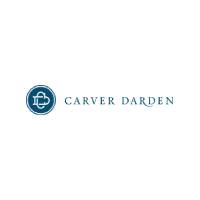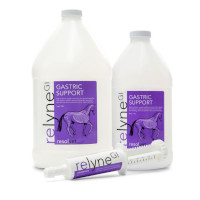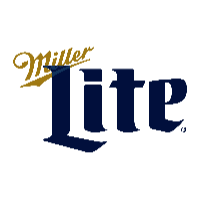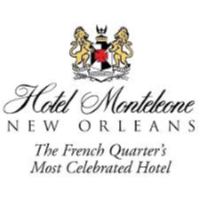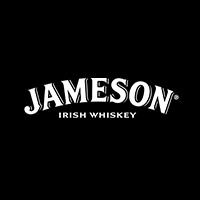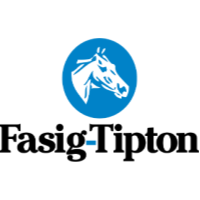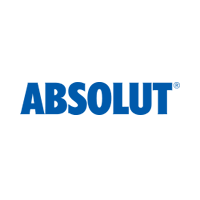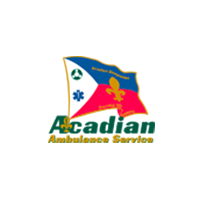KODY KELLENBERGER MAKING AN IMMIDIATE IMPRESSION AT FAIR GROUNDS
FOR IMMEDIATE RELEASE:
Contact: Joe Kristufek/Grant LaGrange
Racing Analyst/Media Relations
APPRENCTICE RIDER KODY KELLENBERGER MAKES AN IMMEDIATE IMPRESSION AT FAIR GROUNDS
His first mount in New Orleans produces a 37-1 longshot winner in Striking Star
New Orleans (February 22, 2020) – Kody Kellenberger, a 24-year-old native of upstate New York, began riding horses when he was 16 on the country side. He graduated to hunter/jumpers, and now eight years later, Kellenberger is hoping to make his mark on the Louisiana racing circuit as a Thoroughbred jockey. After winning on his first mount at Fair Grounds Race Course and Slots at odds of 37-1, he’s off to a pretty good start.
Kellenberger also didn’t waste any time scoring his first career win. On September 22, 2019 at Parx in Philadelphia, he debuted with a victory in a maiden race for amateur riders, scoring aboard the 1-5 favorite Hurricane Jake for trainer Mike Maker.
Now 100 mounts into his first full year in the saddle, the apprentice rider has ten wins, ten seconds, and 14 thirds. With his longshot score on February 16, he became only the third bug to win a race this meet, joining Declan Carroll and David Garcia.
Did anyone in your family have any background with horses? Where did your initial interest come from?
“Horses were always around when I was growing up,” Kellenberger said. “I grew up in a semi-rural area and there were horses and cows. I got to a point where I knew I wanted to do something with horses the rest of my life, I just didn’t know what. I didn’t really have any exposure to racing or anything like that. My dad suggested to me in high school that, since I was small, I should look into becoming a jockey.”
So from that point, how did you go about trying to explore the possibility of becoming a jockey and trying to get yourself involved on the racing side of things?
“I had heard about the North American Racing Academy in Kentucky and Chris McCarron’s jockey school,” Kellenberger said. “I went there for about a year. Then after I felt I was ready, I tried to explore my options. When I wasn’t in school, I would go to the track on my own and try to get on horses, even though it was against the rules. I galloped my first horse at Keeneland while I was still in school. I wasn’t supposed to, but I did it anyways. It went well. Then I took my first job outside the school, breaking babies for Kenny McPeek. I worked for Kenny for about 5 months.”
How did you get to Keeneland and even get certified to get on the horses and gallop? I’m sure you can’t just show up in the morning and hop on a horse’s back right?
“I got around it a little bit,” Kellenberger admitted. “I talked to the outrider out there and he gave me my exercise license. He signed off on it. Then I went out there and went from barn to barn to see if anyone needed help. I was just eager and hungry to get on something.”
After working for McPeek and getting that experience with the babies, where’d you move onto next?
“I went to Middleburg, Virginia,” Kellenberger said. “The coordinator at the school set me up with Steeplechase trainer, so I went there and worked there. He was teaching me how to gallop, and I was really getting on some tough horses. It taught me how to deal with a tough horse. That was probably four years ago. I decided it wasn’t really for me. Everyone was telling me you are too small to do this, you should be out on the racetrack.”
So how did you get back to the track?
“One of the people I was friends with on Facebook told me Ivan Vasquez needed an exercise rider, so I went to Ohio and he taught me a lot up there,” Kellenberger said. “I worked for him for two meets at Belterra Park. From there I went to one of the training centers in Lexington and one of the guys I was galloping with offered to get me a job with Mike Maker at Keeneland. He called out of the blue very early one morning saying they needed a rider and this was my shot. I called in sick to my other job and I went out to Keeneland and it went great. They were super happy with everything. I’ve worked for them for the past two years now.”
How’d you know the timing of when you would be ready to ride competitively and really give this a shot?
“I’ve always been eager, I just didn’t know when would be the right time,” Kellenberger said. “One of the assistant trainers for Mike Maker, Nolan Ramsey, knew that I really wanted to do it and they found an amateur race that they were going to run a horse in. The owner was okay with it, so he called to see if I could ride the horse. They got the okay, so I ran my first race for them at Parx. It is more so for people who are a little too big to be a jockey. I had to carry like 135 pounds. I can tack like 112.”
You won that race. Talk to me about how it felt to win your first race.
“It felt amazing,” Kellenberger said. “I won by like a three quarters of a length. It was surreal. I was just very thankful that they gave me the opportunity. I thanked them probably 100 times.”
After you win that race, you’re a jockey now, you’re in the game. Where did you go from there?
“Nolan Ramsey hooked me up with an agent,” Kellenberger said. “He thought New York would be a good place for me to start. I rode a race over at Belmont and finished 4th. There were some big-name riders in that race. The fields were small and it was really tough starting out as a ten-pound bug and having only ridden one prior race. It was hard to get a start. I was working a lot of horses, but not getting named on much.”
So New York didn’t go so well, but you end up going to Arizona. Talk to me about that transition and what brought you to Arizona.
“I had always thought about going to Arizona,” Kellenberger said. “I thought it would be a good move because there are still some good riders out there, a little bit older past their prime, maybe. I figured the trainers would give me a shot so I called a trainer I knew from Facebook and she told me that they needed a good bug rider and coming there would be a good idea. I drove all the way back to Kentucky, stayed a couple days, and then drove all the way to Arizona. It paid off. I got some good experience and won some races and I picked up the agent I have now, Jerry Bourque. He was my third agent in Arizona. I kind of went through a trial and error period to see who would work well for me. He really works hard and he has been telling me for probably the last month and a half that we needed to come to Louisiana.”
Your first mount here at Fair Grounds, you ride a 37-1 winner. Talk to me about that experience and what that was like.
“It was really exciting,” Kellenberger said. “I thought I had the race won at the half mile pole. Coming around the turn I knew I had it won even before I made it to the lead. When a hole opened, he went straight through it. He responded and got straight through there. He drifted, but got it done. It was really surreal.”
Obviously, you want to make the best move for your career going forward, but for right now are you going to try to make a name for yourself in Louisiana?
“I’m not sure yet,” Kellenberger. “I am kind of leaving a lot of that up to my agent because it depends what kind of business we get here. We have a lot of people asking us to stay in Louisiana, but I’m not sure yet. We might go to the Midwest or somewhere else, we haven’t really made up our mind yet.”
What’s it like walking into a new jocks room with some of those famous jockeys who ride some of the best horses in the industry?
“It feels like I’m back at Belmont,” Kellenberger said. “I feel just grateful to get to ride with some of these top riders in the country. I give it my best shot and learn what I can from them. Everybody has given me little tips here and there. I feel welcomed. When we were out there on the first race walking to the gate they were telling me to ride to the second rider. James Graham told me when you think you are ready to make a move, take three deep breaths, and then make your move.”
Up until this point, how do you feel about your journey so far and what do you think the future holds?
“I am really excited to see what the future has for me,” Kellenberger said. “I don’t know what is going to happen and I am totally okay with that. I am just excited and to ride every day with some of the best. Every time I get a mount, I am just grateful for the opportunity. I’m ready to try my best to put the horse in the best position I can to win.”
-30-
About Fair Grounds Race Course & Slots: Fair Grounds Race Course & Slots, one of the nation’s oldest racetracks, has been in operation since 1872. Located in New Orleans, LA, Fair Grounds is owned by Churchill Downs Incorporated (NASDAQ Global
Select Market: CHDN); it also operates a slot-machine gaming facility and 13 off-track betting parlors throughout southeast Louisiana. The 148th Thoroughbred Racing Season – highlighted by the 107 th running of the Louisiana Derby – will run from November 28, 2019 through March 29, 2020. More information can be found online at www.FairGroundsRaceCourse.com.
Information set forth in this press release contains various “forward-looking statements” within the meaning of Section 27A of the Securities Act of 1933 and Section 21E of the Securities Exchange Act of 1934. The Private Securities Litigation Reform Act of 1995 (the “Act”) provides certain “safe harbor” provisions for forward-looking statements. All forward-looking statements made in this press release are made pursuant to the Act. The reader is cautioned that such forward-looking statements are based on information available at the time and/or management’s good faith belief with respect to future events, and are subject to risks and uncertainties that could cause actual performance or results to differ materially from those expressed in the statements. Forward-looking statements speak only as of the date the statement was made. We assume no obligation to update forward-looking information to reflect actual results, changes in assumptions or changes in other factors affecting forward-looking information. Forward-looking statements are typically identified by the use of terms such as “anticipate,” “believe,” “could,” “estimate,” “expect,” “intend,” “may,” “might,” “plan,” “predict,” “project,” “seek,” “should,” “will,” and similar words, although some forward-looking statements are expressed differently.
Although we believe that the expectations reflected in such forward-looking statements are reasonable, we can give no assurance that such expectations will prove to be correct. Important factors that could cause actual results to differ materially from expectations include the following: the effect of economic conditions on our consumers’ confidence and discretionary spending or our access to credit; additional or increased taxes and fees; public perceptions or lack of confidence in the integrity of our business; loss of key or highly skilled personnel; restrictions in our debt facilities limiting our flexibility to operate our business; general risks related to real estate ownership, including fluctuations in market values and environmental regulations; catastrophic events and system failures disrupting our operations, including the impact of natural and other disasters on our operations and our ability to obtain insurance recoveries in respect of such losses; inability to identify and complete acquisition, expansion or divestiture projects, on time, on budget or as planned; difficulty in integrating recent or future acquisitions into our operations; legalization of online real money gaming and sports wagering in the United States, and our ability to capitalize on and predict such legalization; the number of people attending and wagering on live horse races; inability to respond to rapid technological changes in a timely manner; inadvertent infringement of the intellectual property of others; inability to protect our own intellectual property rights; security breaches and other security risks related to our technology, personal information, source code and other proprietary information, including failure to comply with regulations and other legal obligations relating to receiving, processing, storing and using personal information; payment- related risks, such as chargebacks for fraudulent credit card use; compliance with the Foreign Corrupt Practices Act or applicable money-laundering regulations; compliance with payment processing and payment transmission regulations; work stoppages and labor issues; difficulty in attracting a sufficient number of horses and trainers for full field horseraces; inability to negotiate agreements with industry constituents, including horsemen and other racetracks; personal injury litigation related to injuries occurring at our racetracks; the inability of our totalisator company, United Tote, to maintain its processes accurately, keep its technology current or maintain its significant customers; weather conditions affecting our ability to conduct live racing; increased competition in the horseracing business; changes in the regulatory environment of our racing operations; declining popularity in horseracing; seasonal fluctuations in our horseracing business due to geographic concentration of our operations; increased competition in our casino business; changes in regulatory environment of our casino business; the cost and possibility for delay, cost overruns and other uncertainties associated with the develop.m.ent and expansion of casinos; concentration and evolution of slot machine manufacturing and other technology conditions that could impose additional costs; impact of further legislation prohibiting tobacco smoking; geographic concentration of our casino business; changes in regulatory environment for our advanced deposit wagering, sports wagering, or online gaming businesses; increase in competition in the advanced deposit wagering, sports wagering, or online gaming businesses; inability to retain current customers or attract new customers to our advanced deposit wagering, sports wagering, or online gaming businesses; uncertainty and changes in the legal landscape relating to our advanced deposit wagering, sports wagering, or online gaming businesses; and failure to comply with laws requiring us to block access to certain individuals could result in penalties or impairment in our ability to offer advanced deposit wagering, sports wagering, or online gaming.
